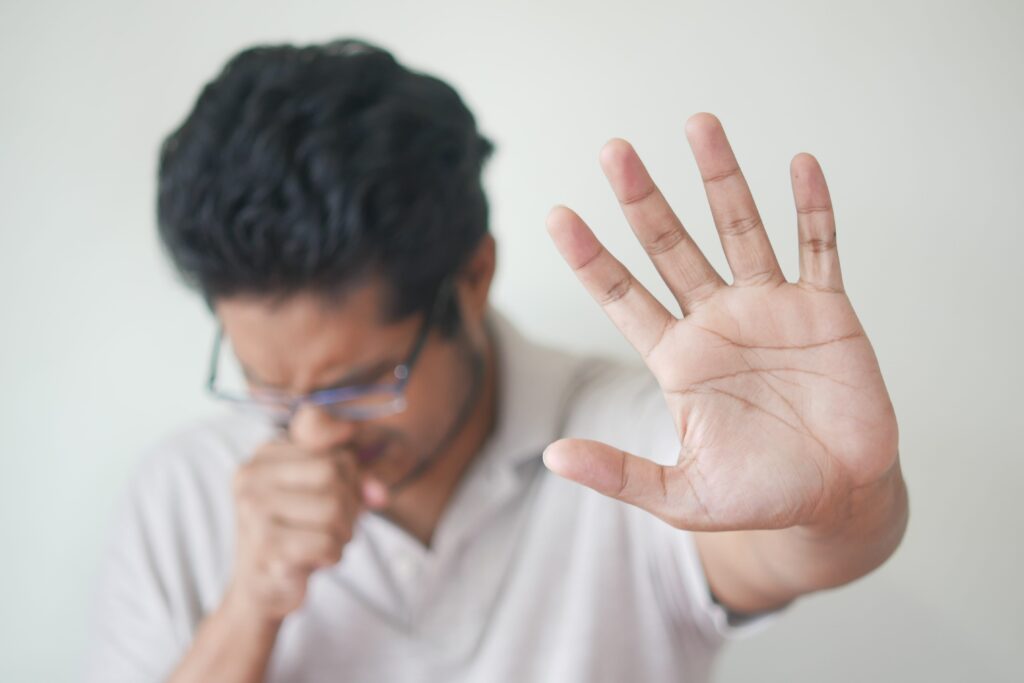
What is Hay Fever?
Hay fever, (technically called allergic rhinitis), is a common condition that typically causes a runny nose, sneezing, or itchy/watery eyes. Hay fever may be seasonal, occupational, or may last all year round. While hay fever isn’t usually dangerous, it’s often irritating and may disrupt your day-to-day life. Read on to find out more about the symptoms, causes, and treatments for hay fever, and how Chinese Medicine can help.
Hay Fever Symptoms:
If you have hay fever you may experience some of the following symptoms:
- runny nose
- itchy nose
- watery, red, or itchy eyes
- nasal congestion
- sneezing
- coughing
- itchy throat
Hay fever symptoms usually appear immediately after you’re exposed to an allergen. If your symptoms last more than a few days, you may be at risk of developing further symptoms, including:
- Headache
- decreased sense of smell
- clogged ears
- fatigue
- irritability
What Causes Hay Fever?
You may experience hay fever symptoms if you’re exposed to allergens like pollen, mold, pet dander, perfume, smoke, or dust mites. If your immune system identifies an allergen as harmful, it will trigger an immune response that can cause hay fever symptoms. You may be more likely to get hay fever if someone in your family also has allergies.
Hay Fever Treatment
You can help reduce hay fever symptoms by adopting lifestyle tips to minimize your exposure to allergens. Keeping your home clean and aired out can help reduce dust and using a dehumidifier can reduce mold. Remembering to wash your hands after touching pets can reduce exposure to pet dander. To soothe hay fever symptoms, try using saline nasal sprays or neti pots to clean your nose. Cooking with turmeric can also reduce allergic reactions. If necessary, you may also choose to use over-the-counter medications like antihistamines, if you cannot manage your symptoms naturally. However, be sure to gather information carefully before taking medications, as there is always a risk of side effects. While hay fever is usually not dangerous, you may wish to see your doctor if your symptoms are severe.
How Can Chinese Medicine Help?
If you’re looking for an effective but natural treatment for hay fever, Chinese Medicine could be right for you. In Chinese Medicine, all the organs in your body are connected to each other and to the rest of your body. If one organ is too weak, this means that other parts of your body could be affected. For example, your lungs and large intestine are two organs that work together to maintain breathing, bowel motions, and nasal health. If your lungs or large intestine are too weak, you could experience breathing and nasal problems like hay fever.
Your Chinese Medicine practitioner can help treat your condition based on your individual situation. By analyzing your symptoms and pulse, your practitioner can observe which organs need strengthening. From there, they can use specific techniques like acupuncture, acupressure, and Chinese herbal medicine to energize those organs. Only when your organs are functioning healthily can your body start to heal. In this way, Chinese Medicine can treat conditions like hay fever from the root of the problem.
Conclusion:
Overall, hay fever is an uncomfortable and irritating condition that is caused by exposure to allergens. Common symptoms include a runny nose, itchy eyes, and sneezing. You can usually treat hay fever with simple lifestyle changes, like avoiding allergens, using nasal spray, and including turmeric in your diet. However, if you need help with managing your hay fever symptoms, Chinese Medicine is an effective and natural treatment option.
References:
Cafasso, J. (2018, November 13). What are the Symptoms of Hay Fever? Healthline. https://www.healthline.com/health/hay-fever-symptoms
If you have any health issues that require attention, Honor Wellness is open seven days a week. Call 604.428.9946 to book an appointment or email us at [email protected]
